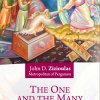Ms. Mihailovich's recent recordings include : Anton Rubinstein Works for Piano (1995), F. Chopin Piano Sonatas Nos. 2 and 3, Polonaise (1996), S. Rachmaninov 2nd Piano Concerto & C. Franck Symphonic Variations (1998), W.A. Mozart Piano Sonatas K.282, K.331, K.333 (1999), S. Rachmaninov 2nd Sonata, Six Musical Moments Op. 16, Preludes (2000), J. S. Bach Partita No. 2, W.A. Mozart Piano Sonata in A major, J. Brahms Intermezzo Op. 177 (No1) and Rhapsody in G Minor Op. 79 (No. 2) (2001).
Pianist enriches College music program
Internationally acclaimed pianist Zora Mihailovich would rather not discuss her accomplishments or her remarkable talent. Instead, the College Department of Music artist-in-residence--a first for the program--would much rather let her music and the music of her students speak for itself.
As artist-in-residence, Mihailovich performs recitals, conducts workshops, and works with a small, select group of talented undergraduates. Kim Kowalke, chair of the College music department and the Richard L. Turner Professor in Humanities, says the position was created three years ago as a way to take advantage of Mihailovich's performance and teaching experience and to expand the opportunities the music department can offer students.
"It is wonderful in every way to have a professional performer of her caliber on the faculty. She offers advanced students on the River Campus the unique opportunity to work with a seasoned musical veteran known internationally as one of the world's premier pianists," says Kowalke.
Mihailovich and her husband, Berislav Zlokovic, professor and associate chair of the Department of Neurological Surgery, made the move to Rochester about four years ago, when he was offered a position to pursue his groundbreaking work in Alzheimer's research at the Medical Center. Zlokovic, a world-class tenor, made the decision to forego a professional career in opera to pursue his work as a medical researcher.
Mihailovich, who still travels the world performing and recording, says moving to Rochester and taking the artist-in-residence position has allowed her to work intimately with students, something she's always enjoyed.
"As an artist-in-residence, I play several concerts a year, conduct master classes, and teach six talented undergraduate students in the advanced piano course. I have wonderful students now, and I find it amazing to watch them grow and improve. I try to teach them something new without destroying what they have--their originality. That originality, along with interpretation and good sound, are what makes great pianists."
Born in Belgrade, Mihailovich says she grew up in a home filled with music and developed a love for the piano by the age of five. Taught by her mother, Mihailovich learned her craft quickly and by the time she was 17 had performed with the Belgrade Philharmonic Orchestra and had become the youngest person to graduate from the Academy of Music in Belgrade.
From there, she left for Rome, where she studied with some of the world's greatest pianists, a move Mihailovich says was pivotal to her career.
"Perhaps the biggest point in my career was going to Italy and working with Carlo Zecchi and other famous musicians. They loved me and that was big for me. I played in big halls and in small halls with incredible people. It's wonderful to be supported by others who accept and love what you're doing. Those are amazing memories for me."
After leaving Rome, Mihailovich took a position with the Belgrade Opera for five years before returning as a professor to the Belgrade Music Academy. In 1989, she and her husband moved from London to Los Angeles, where Mihailovich was a guest artist at the University of Southern California School of Music, University of Fullerton, and California Institute of the Arts. During her time there, she traveled and performed throughout the United States and in Western and Eastern Europe, taught master classes, and made several recordings.
As a Steinway artist, an honor reserved for an elite group of international pianists, Mihailovich still performs 30 to 40 concerts a year in Europe and across the United States. Playing the music she loves, Mihailovich says, is still as exciting today as it was when her career started.
"I still love playing now, perhaps more than ever. My repertoire includes everything from Baroque to contemporary music, although my preference is romantic music by such greats as Rachmaninov, Mozart, and Chopin; I love the challenge and beauty of their music. And I'm still improving. You can always improve, no matter how old you are."





